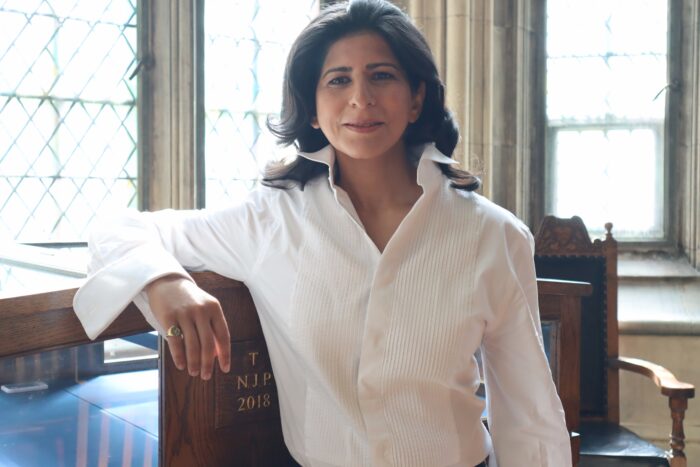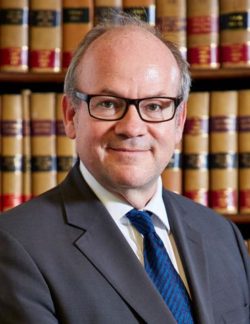You don’t need to study law at University to become a lawyer.
That may sound nonsensical and that we are talking ourselves out of our jobs, but it’s true.
Many successful, and high-profile, lawyers did not study law as their degree. So why study law? Well, that’s where the magic happens. Studying law at Cambridge is a unique experience where you combine the theoretical side of the subject as a pure academic discipline, with a fulsome understanding of its pertinence and quintessence in everyday life and wider civilisation. You will be taught by some of the foremost scholars in their fields, and develop a profound understanding of law and its place in society. No, you do not need law, but, if it is a subject that fascinates you, you will find law both rewarding and meaningful.
Full course details are provided on the Faculty’s Prospective Undergraduates webpage and the University’s Undergraduate Study webpage.
Law at Churchill
Although your lectures will be held centrally at Cambridge’s Faculty of Law, your community will be Churchill. Churchill has had a storied history with law, and we host a thriving group of undergraduate and postgraduate students. With Fellows spanning a diverse range of interests from company law and tax, to philosophy and jurisprudence, Churchill provides a welcoming environment for its lawyers. We are immensely proud of the considerable accomplishments of our lawyers whilst studying at Cambridge, but, above all, the College is a place for our law students to relish the subject, enjoy their time as students, and fulfil their potentials.
As part of Churchill law, you will be automatically enrolled as a member of the Churchill Law Society – a student-run body which brings our law community together, providing informal mentoring and regular organised events. In particular, the Society arranges frequent engagements and dinners with law firms, and the Law Society Dinner is always a highlight of the year.
A degree in law can lead to a variety of careers in the legal profession and elsewhere. Churchill law alumni have succeeded in numerous spheres, with successful barristers and law firm partners, and a current Supreme Court Justice. You can read more about a selection of our alumni here. Whatever your future direction, a Cambridge law degree will serve you well, and equip you with a diverse range of skills to navigate the professional world. Unique amongst Cambridge Colleges, Churchill’s Director of Studies is a former partner of one of the most prestigious global law firms, and can give salient career guidance. The University also provides an extensive careers guidance service for those pursuing a career in law or other disciplines.
Undergraduate Admissions
Admissions
To find out about admissions, go to undergraduate applications.
Entry Requirements
Course-specific information, including the University’s minimum offer level, can be found by selecting your course from the University’s Course List then looking at the “Entry Requirements” tab. The University’s Entrance Requirements and International Entry Requirements webpages may contain guidance relevant to you too.
At Churchill, we want to admit undergraduates who will thrive during their time here, so – in their interests – we tend to set conditional offers in line with the typical attainment of Cambridge entrants, by course. On average, this allows us to make a relatively generous number of offers per place, but it also means that our requirements are usually a little more rigorous than the University’s minimum offer level.
You can learn more about the academic profiles of Churchill entrants and our approach to setting conditional offers on our undergraduate applications page.
Admissions Assessment
All Law applicants are required to take the Law National Aptitude Test (LNAT).
You must register for this in advance.
There’s more information on and linked from the University’s Admissions Assessments webpage and the LNAT webpage, including a preparation guide and practice materials.
Interview
The role of academic interviews in Churchill’s admissions process is explained on our interviews page. Our interviewers will be looking for evidence of enthusiasm for and a potential for aptitude in the subjects covered by the Law Tripos.
Postgraduate Admissions
Churchill welcomes LLM, MCL and PhD law students to the College, who become an integral part of Churchill’s law and graduate community. We encourage our postgraduate students to participate in Churchill Law Society events, and to play a vibrant role in the College alongside our undergraduate law students. Postgraduate students are admitted centrally by the University’s Postgraduate Admissions Office (PAO), and you must apply to PAO rather than the College. You can indicate Churchill College as being your College of preference on your application form. Further details are outlined for each relevant course here.
Fellows in Law
Professor Peter Harris
Peter A. Harris is a solicitor whose primary academic interest is in tax law. He is a Reader in the Faculty of Law of the University… Find out moreProfessor Matthew Kramer
Matthew H. Kramer was born in Massachusetts and educated at Cornell (BA), Harvard (JD), and Cambridge (PhD and LLD). He has advanced degrees in both Philosophy… Find out moreMr Nathan Rasiah
Nathan is a criminal barrister who practices from 23 ES Chambers, London. He acts for the prosecution and defence in all areas of criminal law, specialising… Find out moreLaw Alumni
A degree in law can lead to a variety of careers in the legal profession and elsewhere. Churchill law alumni have succeeded in numerous spheres, with successful barristers and law firm partners, and a current Supreme Court Justice. Whatever your future direction, a Cambridge law degree will serve you well, and equip you with a diverse range of skills to navigate the professional world. Read about some of our law alumni here.
Mahnaz Malik
 Mahnaz Malik is an international arbitrator, barrister and author.
Mahnaz Malik is an international arbitrator, barrister and author.
Mahnaz practises as a Barrister and Arbitrator at Twenty Essex Chambers. She has over 23 years of experience in advising Governments, corporations and international organisations on international investment law issues and disputes. She has acted as counsel on behalf of both investors and states in several investment and commercial disputes including ICC, ICSID, LCIA and PCA administered arbitrations. Mahnaz’s appointment as an arbitrator in EuroGas Inc. and Belmont Resources Inc. v. Republic of Slovakia makes her one of the youngest ever appointed to an ICSID Annulment Committee since records began and the youngest woman.
After graduating from Churchill College, Mahnaz was admitted to practise law in New York, England and Wales and Pakistan. She started her legal career by winning the Law Society’s National Trainee Lawyer of the Year Award. Her professional awards include the prestigious Financial Times Legal Innovator of the Year Award 2007, the President of Pakistan’s Shining Star Award 2005, the City of London’s Wig and Pen Pro Bono Prize 2005.
Mahnaz was responsible for establishing the British Pakistan Law Council Advocate Programme in partnership with the Law Society and the FCO which released over 300 children from detention in Pakistan in six months.
Mahnaz is the author of four books. Her first two books were published when Mahnaz was a teenager. She featured in Varsity whilst an undergraduate at Churchill. Mahnaz’s most recent publications are two children’s books called Min Chin’s Tree House and Mo’s Star published by Oxford University Press. Mo’s Star was published by Oxford University Press in English and Urdu, and in Arabic by Kalimat in the UAE. Mo’s Star’s audio versions were enacted by the English actor Joseph Fiennes and the Indian actress Vidya Balan. All proceeds from Mo’s Star go towards charities helping educate children in Pakistan. Mahnaz’s stories have been performed on the BBC World Service Short Story Programme. She also co-wrote and co-directed a short film titled ‘Omar and the Glass Splinter’ which was screened at various film festivals and launched the Raindance Film Festival in London.
Mahnaz is a keen polo player and considers one of her greatest achievements was to be part of the winning Four Nations Team at the Sandhurst Military Academy’s Heritage Polo Cup. She is a Fellow at Hughes Hall College.
Lord Philip Sales

Philip Sales came to Churchill to read Law in 1980. During his time at the college he discovered that he enjoyed Law and found it very intellectually stimulating. He decided that he would try to become a barrister, but before that he wanted to study at postgraduate level. So he went to Worcester College, Oxford to study for the BCL. He then went to Bar School, graduating in 1985. He was called to the Bar in 1986.
Philip did pupillage in the Chambers of Alexander Irvine QC (later Lord Irvine of Lairg, Lord Chancellor from 1997 to 2003) at 11 King’s Bench Walk in the Temple and was taken on there as a tenant. He started at the Bar specialising in employment law, but moved on to commercial law quite quickly, He also practised in the field of public law. In 1997 he was appointed to be First Treasury Junior Counsel, Common Law (a position with a formal nickname: the Treasury Devil), i.e. the main barrister to advise the Government and represent it in court. He continued in the role until appointed to be a High Court judge in 2008. He took silk (became a QC, or Queen’s Counsel) in 2006, when his title changed to First Treasury Counsel, Common Law. When acting for the Government, he specialised in public law. He represented the Government in cases in the European Court of Human Rights in Strasbourg, in the Court of Justice of the European Union in Luxembourg, and in the domestic courts, including many cases in the House of Lords (before the appellate committee became the Supreme Court). He was involved in many of the early cases on the Human Rights Act 1998 and other cases with constitutional significance. He was a part time judge (a Recorder, sitting in criminal cases in the Crown Court, and a Deputy High Court judge) from 1999 to 2008. As a High Court judge Philip sat in the Chancery Division (doing business and commercial cases) and in the Administrative Court (doing public law cases).
In 2014 Philip was appointed to be a Lord Justice of Appeal, sitting in the Court of Appeal for England in Wales. He was one of the court of three judges at first instance in the first Miller case on leaving the EU, who had their photos printed on the front page of the Daily Mail for 4 November 2016 with the headline, “Enemies of the People”. He also gave judgments in a lot of other cases which no one bothered writing about.
In 2018 Philip was selected for appointment as a Justice of the Supreme Court of the UK and started in that role in January 2019. In that position, he was one of the 11 Justices who ruled that the prorogation of Parliament in 2019 was unlawful in the second Miller case.
Throughout his professional life at the Bar and on the Bench, Philip has written articles and essays for legal academic journals and books. His intellectual interest in the law, first acquired as a student, has continued unabated.
Philip is married to Miranda Wolpert. They met as students at Churchill. For relaxation, Philip enjoys theatre, film and opera; reading (principally history and legal and political philosophy); and playing ultimate frisbee (very badly) with friends in the local park.
Philip is an Honorary Fellow of Churchill College.
Mark Watterson
 Mark read law at Churchill between 1982 and 1985 and was President of the College Law Society and Captain of the College Rugby Club. After studying for his Law Society Finals at Guildford College of Law, he joined Freshfields as an articled clerk (now trainee solicitor) in 1986 and qualified into its tax department in 1988. He was seconded to an International tax firm in the Netherlands in 1991 and on his return began to specialise in investment funds work, becoming the firm’s second funds partner in 1997. Freshfields’ funds group moved into its corporate department in 2001 (and the firm’s mergers with two German firms that year created Freshfields Bruckhaus Deringer as it is known today) and Mark took over leadership of the group in 2004. He retired at the end of April 2021 after 17 years in the role.
Mark read law at Churchill between 1982 and 1985 and was President of the College Law Society and Captain of the College Rugby Club. After studying for his Law Society Finals at Guildford College of Law, he joined Freshfields as an articled clerk (now trainee solicitor) in 1986 and qualified into its tax department in 1988. He was seconded to an International tax firm in the Netherlands in 1991 and on his return began to specialise in investment funds work, becoming the firm’s second funds partner in 1997. Freshfields’ funds group moved into its corporate department in 2001 (and the firm’s mergers with two German firms that year created Freshfields Bruckhaus Deringer as it is known today) and Mark took over leadership of the group in 2004. He retired at the end of April 2021 after 17 years in the role.
During his time with Freshfields, Mark was at the forefront of developments in the use of funds in a myriad of situations, including Delaware limited partnerships and Jersey unit trusts for UK property investment (on his retirement, he received an e-mail from the partners in a Jersey law firm thanking him on behalf of themselves and the Bailiwick of Jersey for inventing Jersey property unit trusts or “JPUTs”) and UK unauthorised unit trusts and authorised open-ended investment companies for tax efficient structured capital markets transactions (not all of which he says were closed down by HMRC). He was also involved with Freshfields’ conversion into a limited liability partnership in 2008 and in its Brexit related restructuring in 2020.
Following a discussion with former Master Sir David Wallace at an alumni event in 2006, Mark has taken a greater interest in College life and has made donations to the running of the Law Society and the Rugby Club for several years. He has also been active in Freshfields’ recruitment activities at the University, and particularly the College, and is delighted that several Churchillians (most of whom did not read law or play rugby) remain at Freshfields to continue the relationship.
